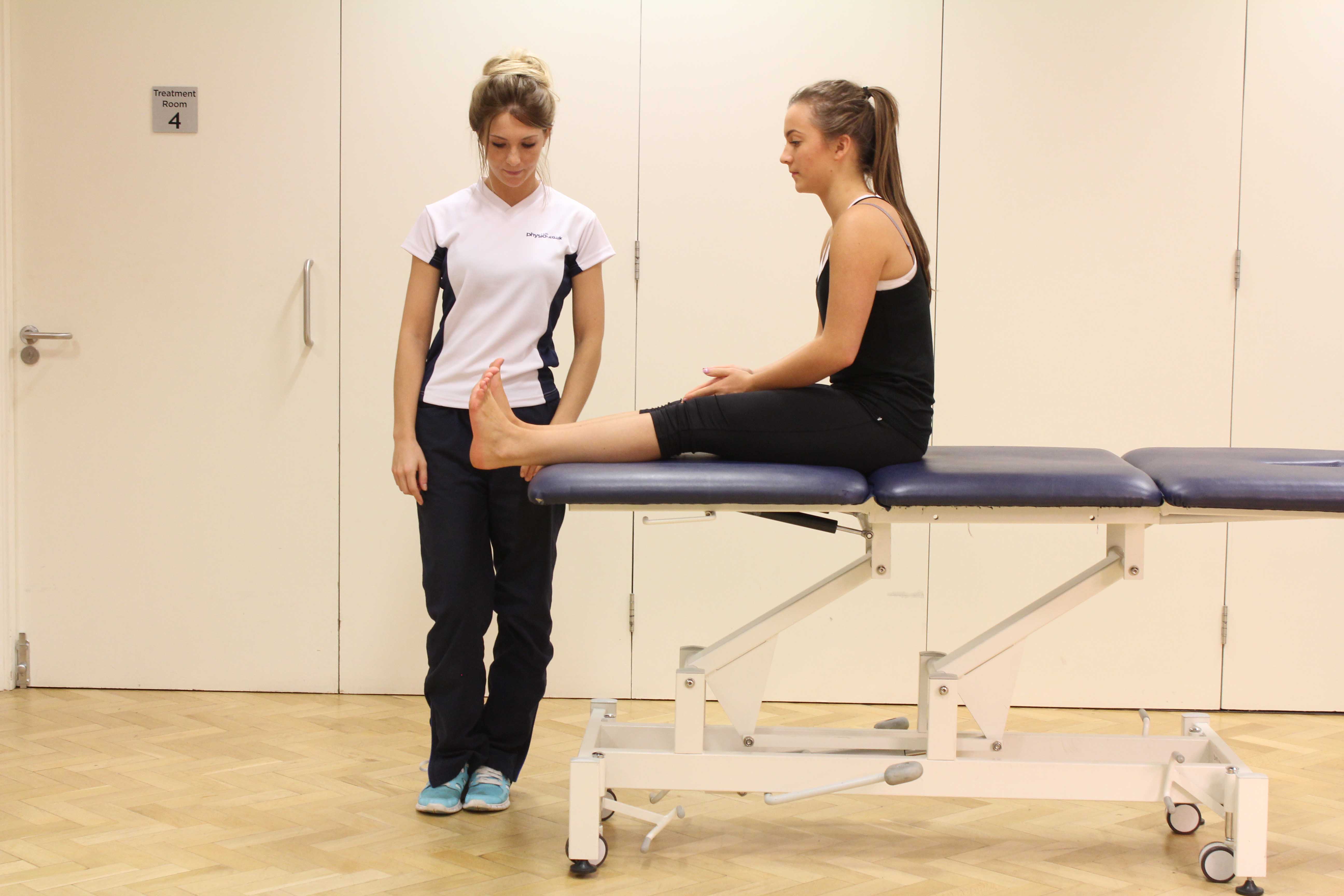What is Plantar Fasciitis?
The Planta Fascia is a strong band of fibrous tissue that runs from the calcaneous bone in the heel, along the base of the foot to the metatarsal bones in the ball of the foot. It provides tension that maintains the arch of your foot and helps absorb impact when walking or running.
Damage to the Planta Fascia, commonly in the form of micro tears, causes the fibrous band to thicken as it repairs itself. Over time this thickening effect creates pressure on the surrounding tissues, causing pain.
What causes Plantar Fasciitis?
Damage to the planta Fascia can occur from single traumatic events, such as direct impacts. The inflammation that results from more significant tears to the fascia will likely bring on immediate pain. Often the damage is caused over time through repeated overuse. This excessive wear and tear would bring on the symptoms of pain gradually, with people only seeking medical help once pain interferes with normal daily activities.
Gradual wear and tear of the Planta Fascia can be exacerbated by Biomechanical Abnormalities present in the foot or ankle, including excessive supination or pronation. Having flat feet or very high arches may also contribute to increased wear over time. Sudden increases in activity levels such as taking up a new sport or just being on your feet for several hours can trigger a flare up. Sometimes even a change footwear, from heels to flats, or an abnormal running or walking gait pattern can create inflammation in the planta fasciitis.
Such changes put new stresses on the planta fascia creating damage in the form of tiny tears. As these heal the fascia thickens which can cause pain and it presses on the surrounding tissues and structures. As this process is often cumulative it is common to see Planta Fasciitis in the elderly and people who are very active.
 Above: Our therapist providing advice on how to manage plantar fasciitis
Above: Our therapist providing advice on how to manage plantar fasciitis What are the symptoms of Plantar Fasciitis?
If you have Planta fasciitis you may be experiencing some of the following symptoms;
- Pain or dull ache towards the front of your heel, can spread along inside base of the foot.
- Pain is more apparent after long periods of rest, most notable first thing in the morning.
- Pain is usually aggravated by walking and running.
Because the symptoms of Planta Fasciitis are similar to other kinds of tissue damage that can occur in the foot, it is important to get assessed by a medical professional. So that you receive appropriate care targeted to your condition.
How is Plantar Fasciitis Diagnosed?
A thorough physical assessment from a physiotherapist or doctor will confirm a diagnosis of plantar fasciitis. This will include tests to exclude the possibility of other conditions.
For more information on how physiotherapy can help treat plantar fasciitus, please email office@liverpoolphysio.co.uk or ring us on 0151 558 0077.
What would a physiotherapy assessment for plantar fasciitus in the foot involve?
At Liverpool Physio we aim to deliver an effective physiotherapy service. To ensure you get the most from your treatment, our physiotherapists will take time to understand your symptoms and problems. Your first appointment will consist of an assessment which is broken down into two parts:
Subjective
Half of this session will be spent in discussion to find out when your symptoms began and what problems they are causing you in detail. Our physiotherapists will want to gain an understanding of the patterns of your pain and stiffness and learn information about any previous injuries you may have had.
Objective
Following this, with consideration of your current pain, your range of movement, walking and muscle strength in your foot will be assessed. Our physiotherapists may also carry out a series of special tests on your foot and ankle.
What would Physiotherapy treatment for Plantar Fasciitis involve?
Our experienced physiotherapists at Liverpool Physio will aim to achieve the best possible functional recovery, to ensure your pain free return to normal activities and sports participation. Early diagnosis will allow you to modify your activity and receive treatment which can speed up your recovery.
- Soft tissue massage, to relieve stiffness and pain.
- Joint mobility exercises
- Flexibility and Strengthening exercises to match level of healing.
- Mobilisation exercises, passive and active.
- Heat treatment, and Ice in the early stages.
- Ultrasound therapy to promote healing in the affected tissues.
- Taping to support the arch and encourage foot position awareness.
- Footwear suitability assessment and advice
- Advice on use of orthotics and insoles.
- Biomechanical abnormality analysis and gait correction
Physiotherapy treatment will reduce pain and accelerate healing so that you can get back to your sports and everyday activities as quickly as possible. We will provide you with a targeted exercise program that will help you recover and reduce the risk of re-injury. If you would like more information on how physiotherapy can help with plantar fasciitis, please email office@liverpoolphysio.co.uk or ring us on 0151 558 0077.
How can I arrange a physiotherapy assessment for Plantar Fasciitis?
If you are having problems including pain, stiffness or signs of inflammation around one of your feet, particularly the heel, you may have Planta Fasciitis and would benefit from an assessment at Liverpool Physio from one of our experienced physiotherapists.
You can contact us directly to arrange an assessment and we can advise you if further treatment is recommended, or give you details on self-management for minor cases. To arrange an appointment please email office@liverpoolphysio.co.uk or call 0151 558 0077.
Summary
Plantar Fasciitis can be very painful and have a pronouncedly limiting effect on your daily activities and any sports participation. Without early intervention the condition can easily become chronic and take far longer to heal. With Physiotherapy intervention we can reduce your painful symptoms and speed up recovery, tailoring a treatment plan to your specific needs.
We can use a combination of massage, mobilisations, stretching and strengthening exercises to ensure you achieve the best possible return to normal function. Every treatment session will aim at getting you back to the normal daily activities and sports you enjoy.
For more information on how physiotherapy can help treat plantar fasciitus, or to book yourself an assessment, please email office@liverpoolphysio.co.uk or ring us on 0151 558 0077.
↑ Back to top
















